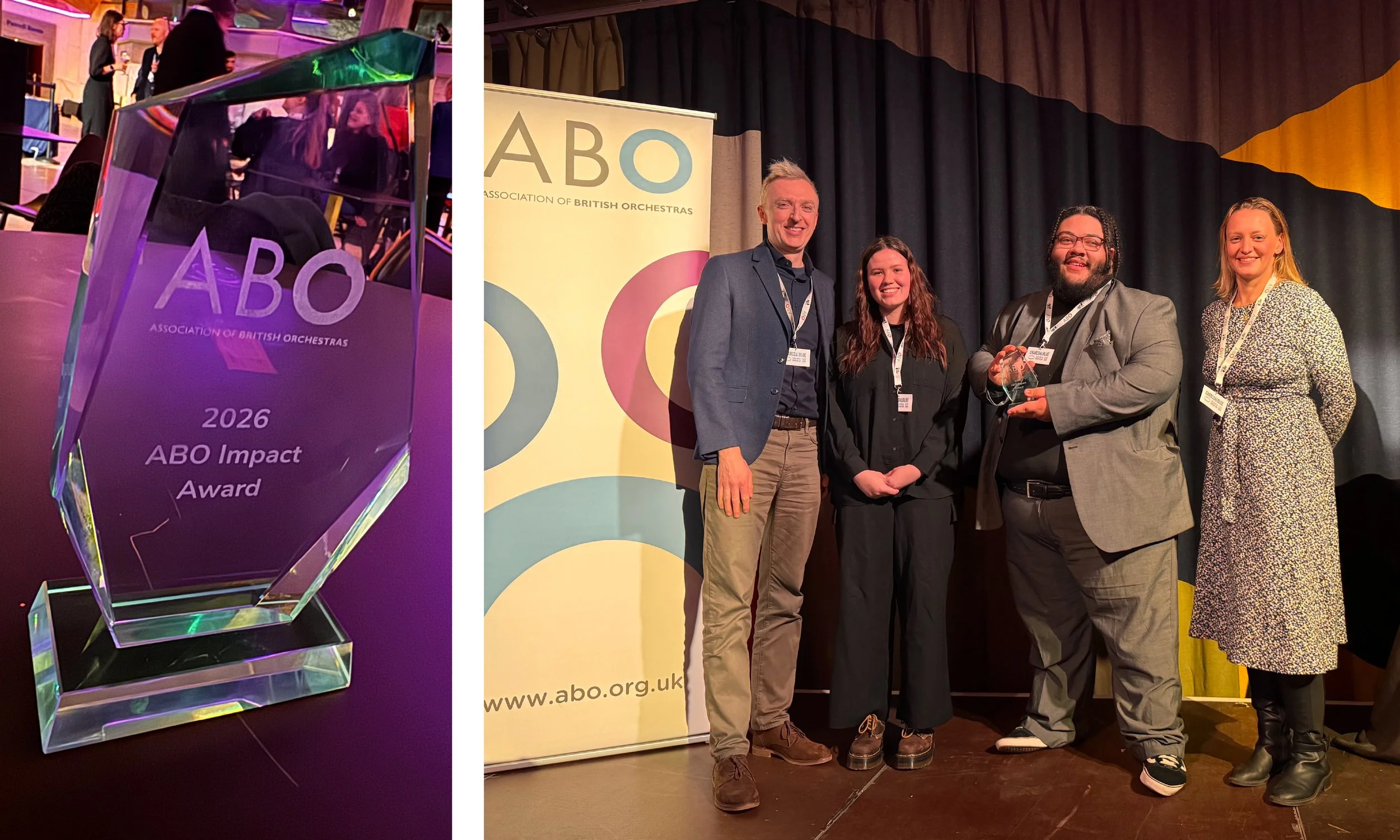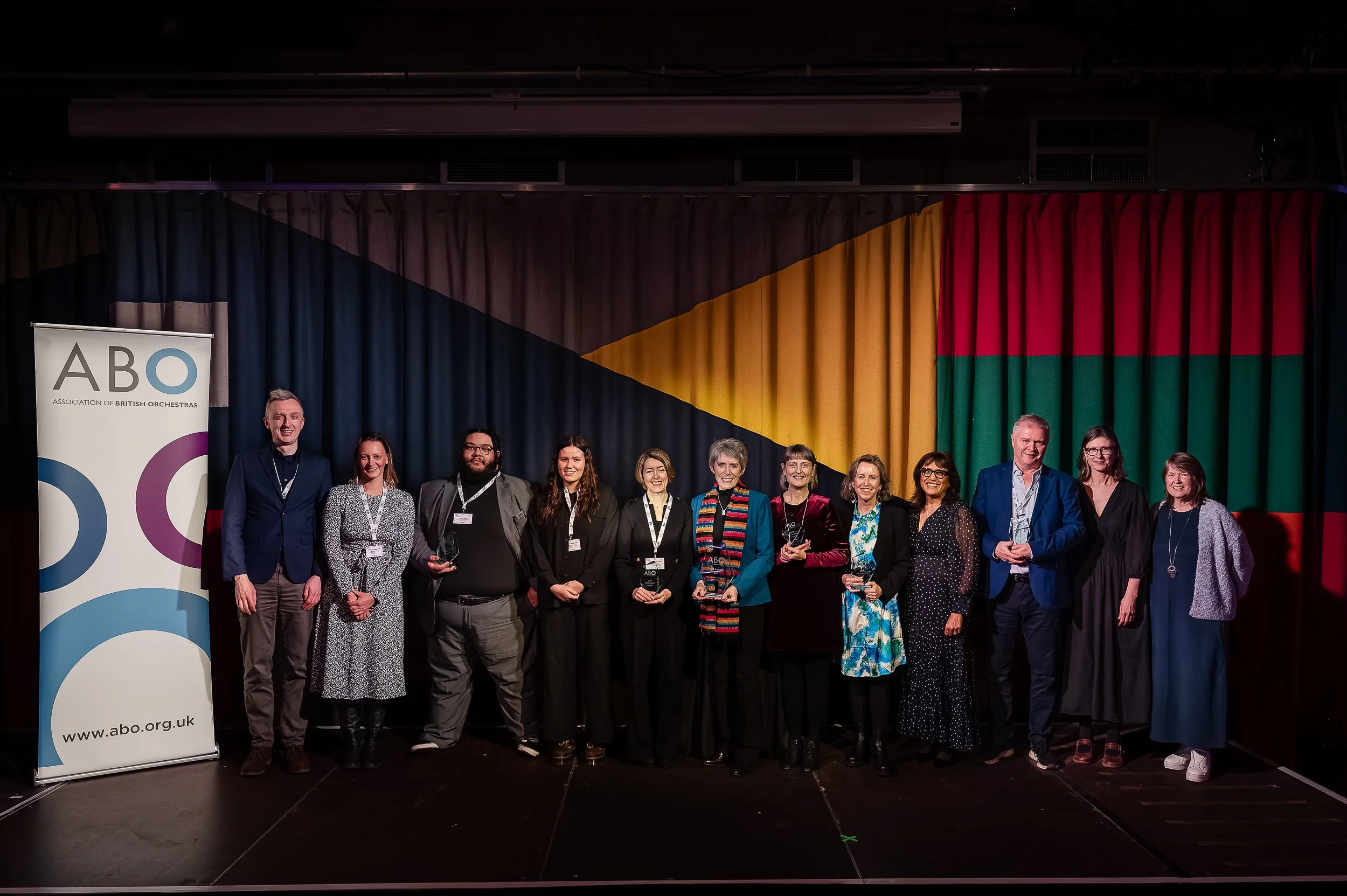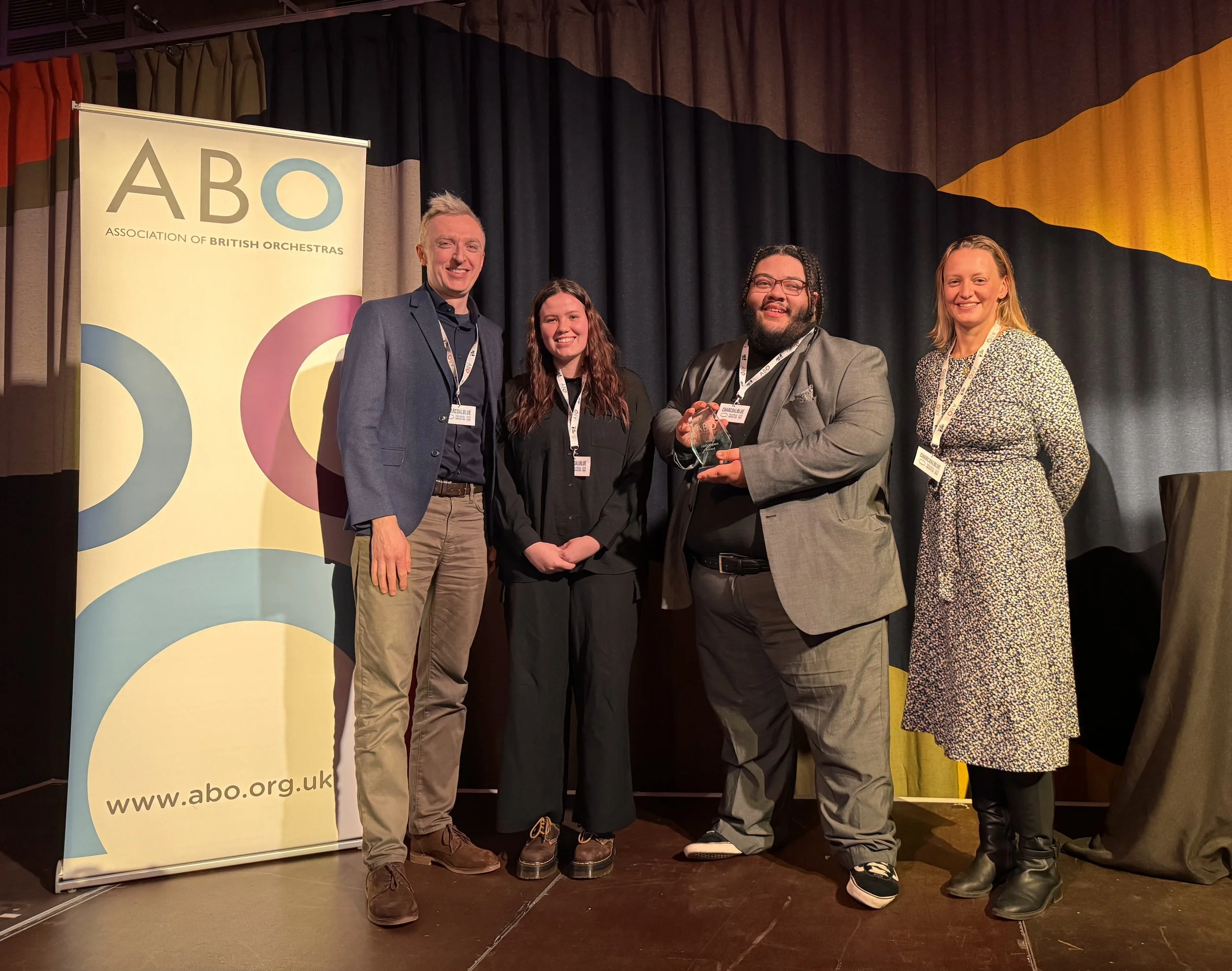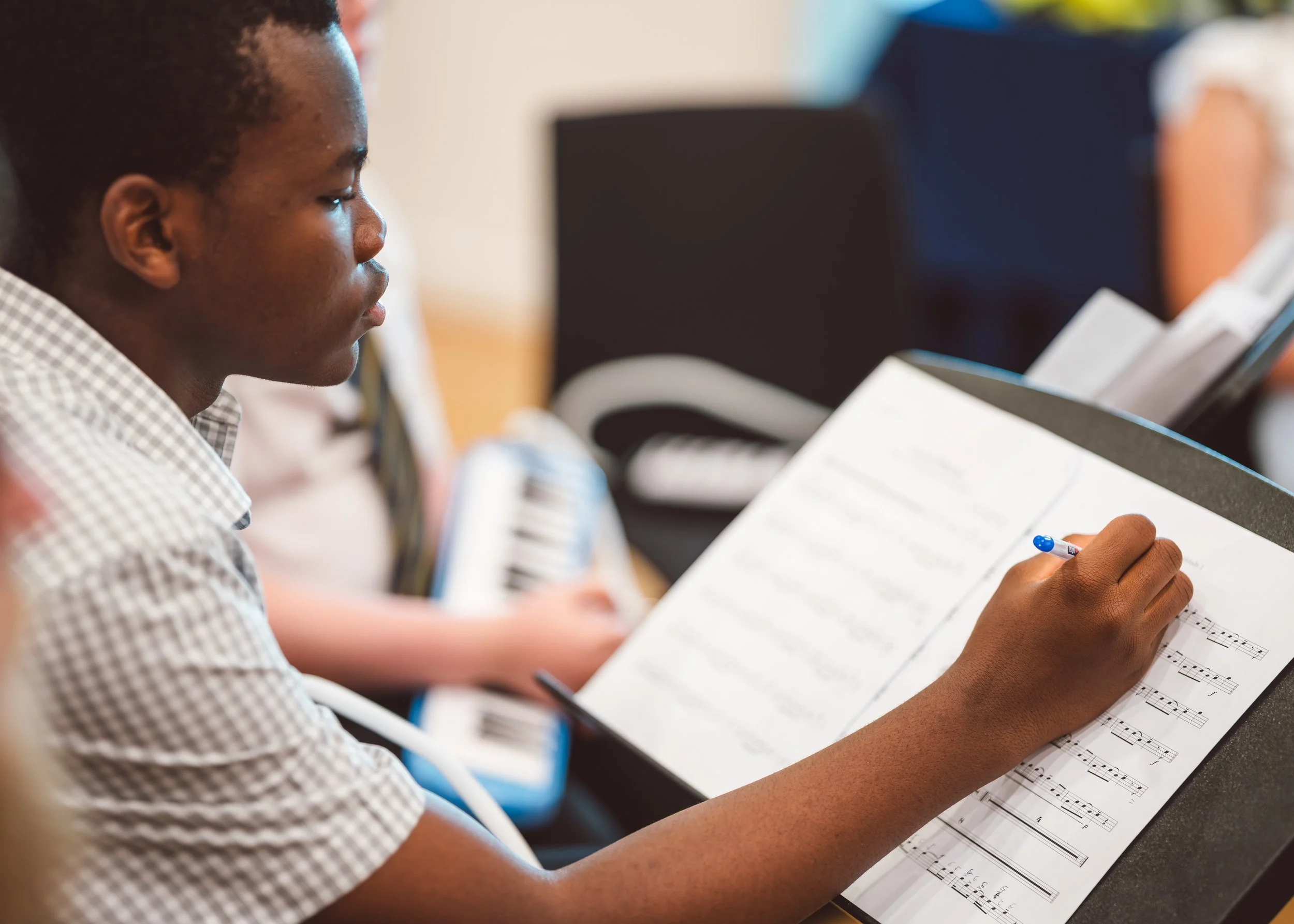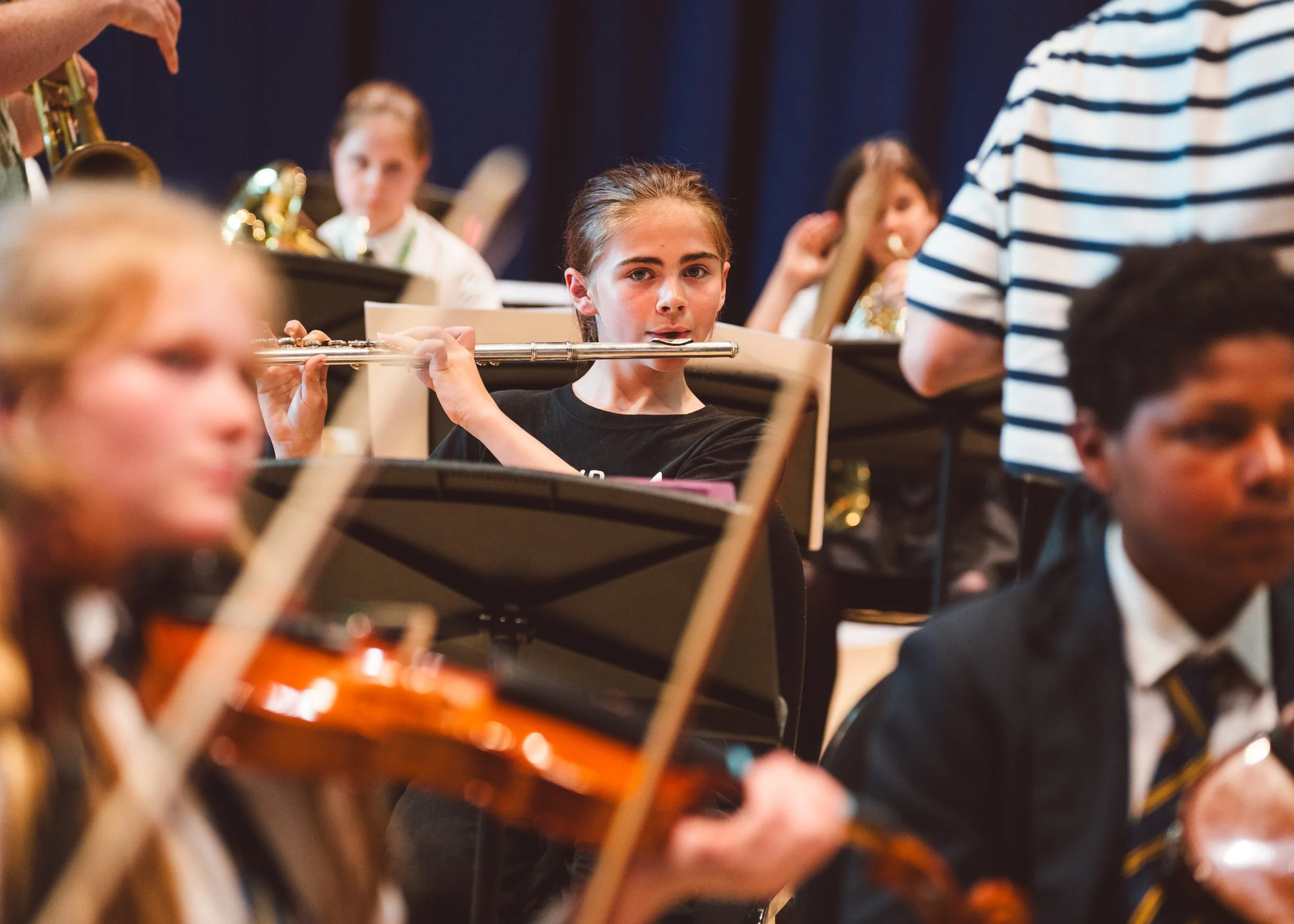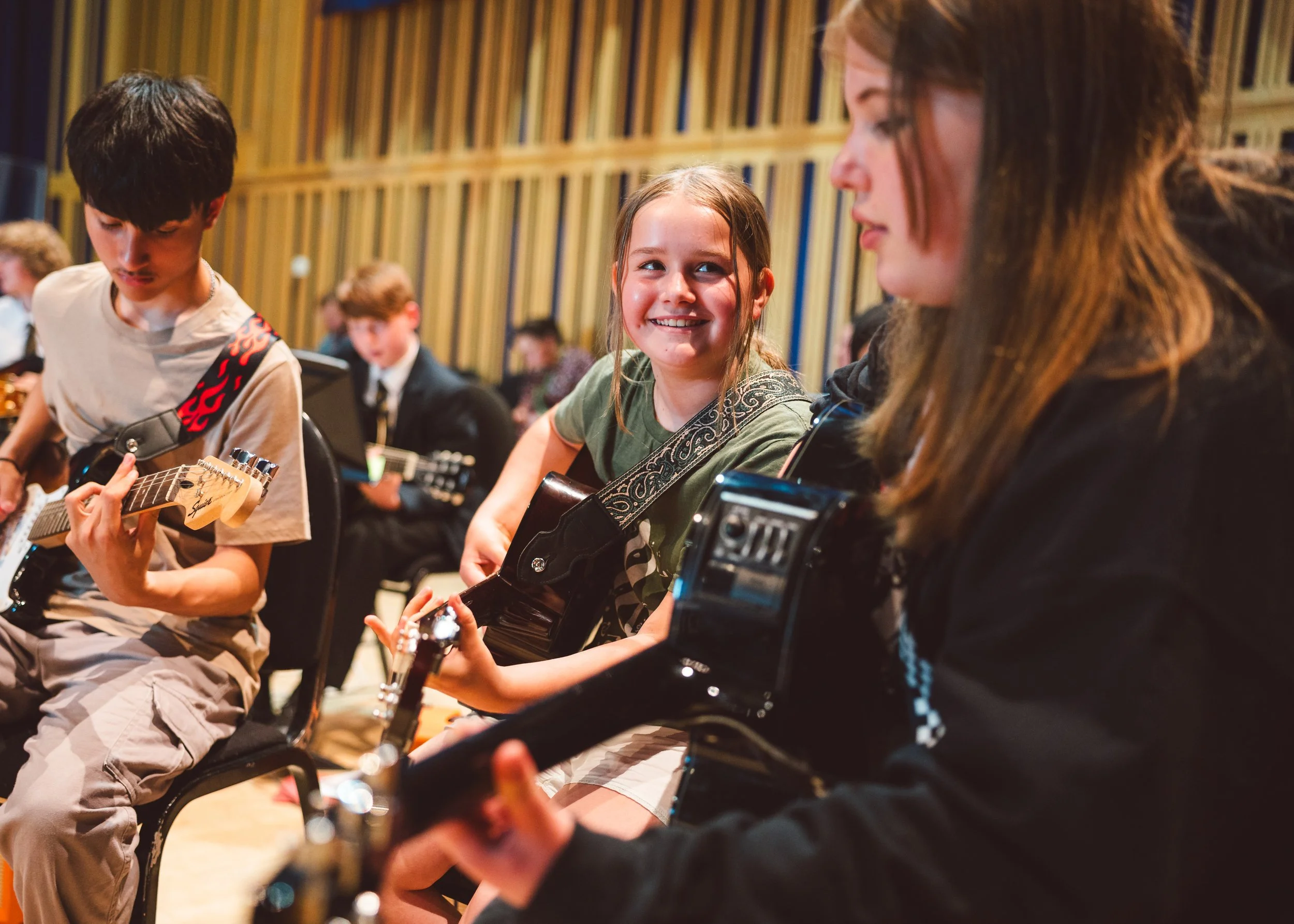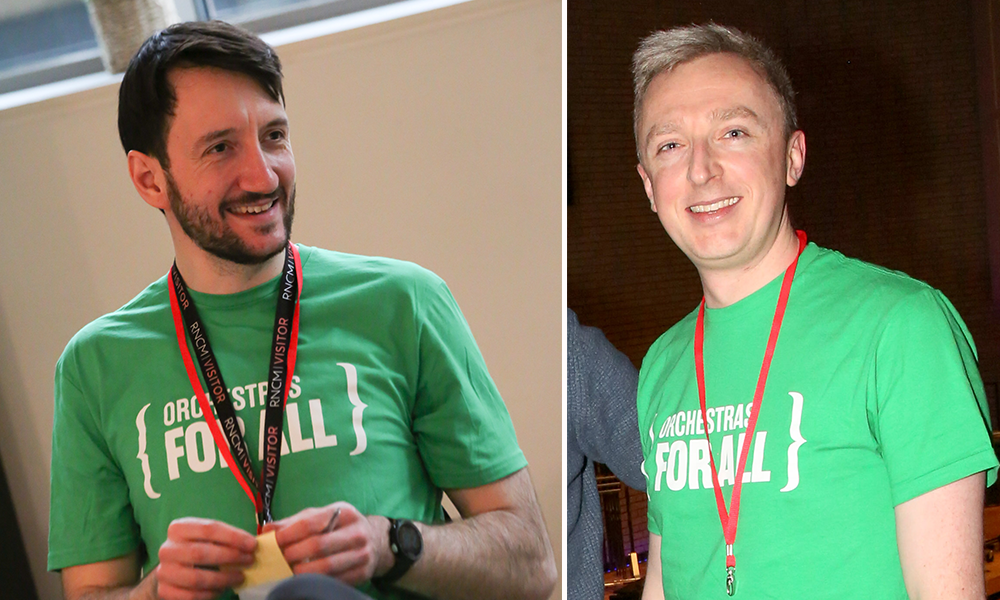“The presence of Orchestras for All in the orchestral sector has changed the landscape of youth music”
Orchestras for All (OFA) is proud to announce that it has won the Equity, Diversity and Inclusion award at the 2026 ABO Impact Awards!
Held at the Southbank Centre, this inspiring ceremony celebrated organisations and individuals working across the UK classical music sector whose work demonstrates the values of inspiration, innovation or collaboration.
Thank you to the Association of British Orchestras (ABO) for this energising recognition of our work, and to our incredible community for your continued support. Receiving this award reaffirms the importance of our mission to break down barriers so that all young people can experience the joy of orchestral music-making, regardless of the challenges they face.
Announcing the Award, Classic FM presenter Ritula Shah told the audience, “The presence of Orchestras for All in the orchestral sector has changed the landscape of youth music, placing youth voice at the centre of their work and encouraging the sector to embed young people in its governance, strategy and delivery.”
Read more: Orchestras for All joins Music Mark’s podcast to talk Youth Leadership
Orchestras for All celebrate winning the ABO Equity, Diversity and Inclusion Award
At Orchestras for All, we know that inclusive music-making changes lives. As we enter our 15th anniversary year, we are aware that the barriers we set out to overcome in 2011 have only increased.
Today, challenges such as rising mental health concerns, widening inequality, and social media pressures make it both more vital and more difficult than ever for young people to access music-making opportunities.
Through our three transformative programmes - National Orchestra for All (NOFA), Modulo, and Music Leadership Training (MLT) – Orchestras for All is rewriting the narrative of who gets to take part in music and supporting the sector to become more equitable, accessible and inclusive.
“In 2025, Orchestras for All delivered on its mission to bring people together by providing opportunities for 100 young musicians of all abilities and backgrounds to participate in its flagship programme, National Orchestra for All (NOFA)”, shared Classic FM presenter Ritula Shah during the ABO Impact Awards ceremony.
“NOFA is the most inclusive, accessible and diverse national youth orchestra in the UK today, welcoming all instruments, and encouraging those often excluded from a more traditional orchestral setting.”
Meanwhile, Jonathan Harper, CEO of Paraorchestra, commented, “We couldn’t be happier to see Orchestras for All win the EDI Impact award for embedding young people’s voices so strongly at the centre of their work”
Read more: Empowering young minds: The importance of young people’s mental wellbeing
Executive Director Nick Thorne, Youth Leadership Coordinator Becky Thomas, Composer and NOFA Alum Christian Dews and Founding Director Marianna Hay MBE, accept the award.
Thank you! This award belongs to you.
Our heartfelt thanks to the Association of British Orchestras and to our amazing community of funders, supporters, and partners who make our vital work possible.
Thank you to the inspiring young musicians and leaders at the heart of everything we do. Our charity wouldn’t exist without you, and this award celebrates you!
As we embark on our 15th anniversary year, we’re excited to continue our work redefining equity, accessibility and inclusive practices in music-making!
Keep an eye out for exciting updates and stay tuned to see what our NOFA and Modulo orchestras get up to in 2026.


